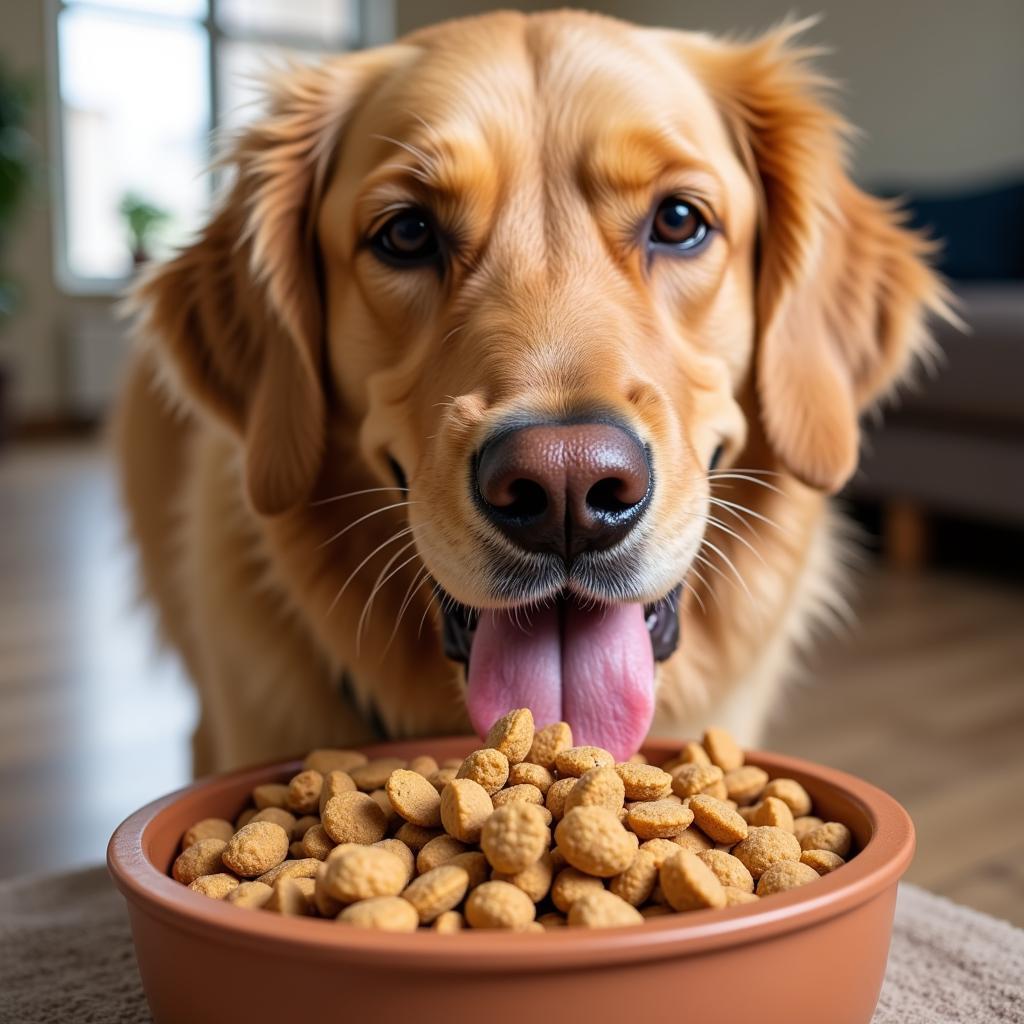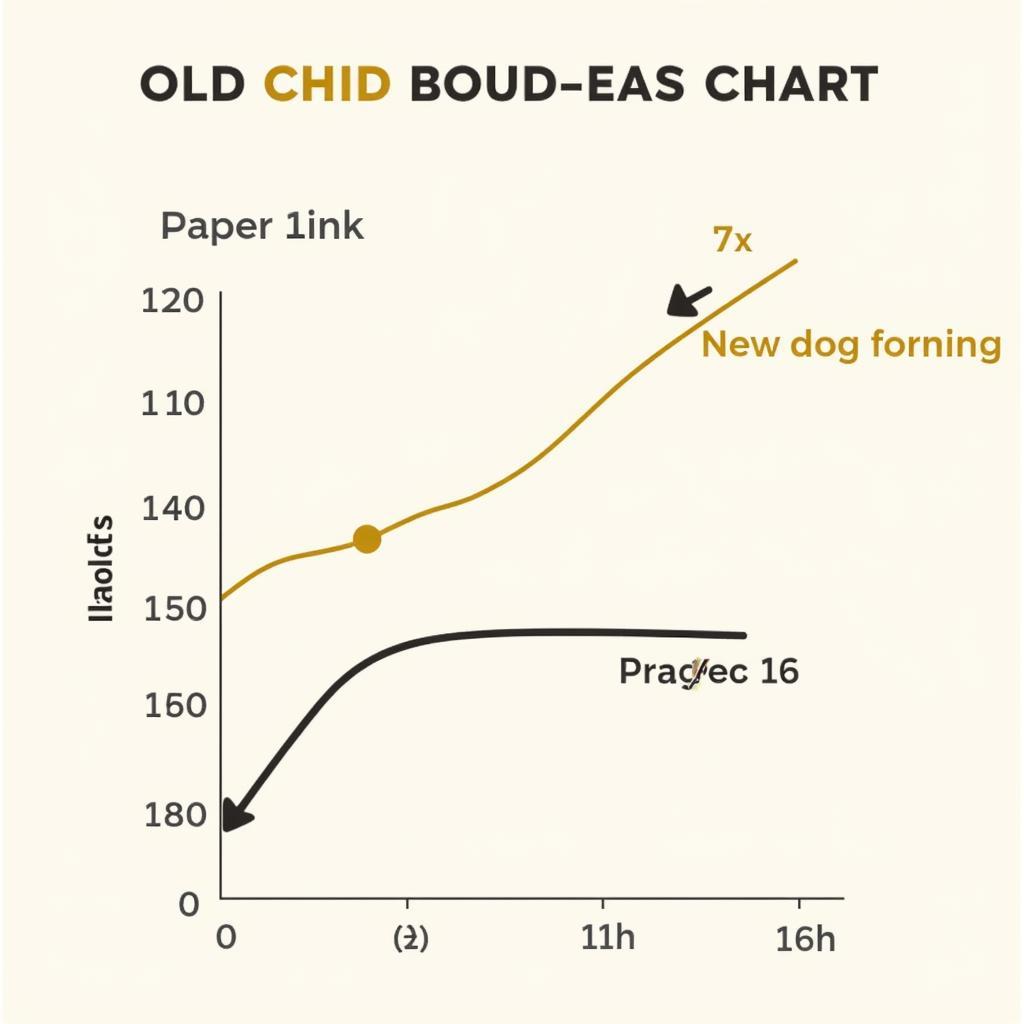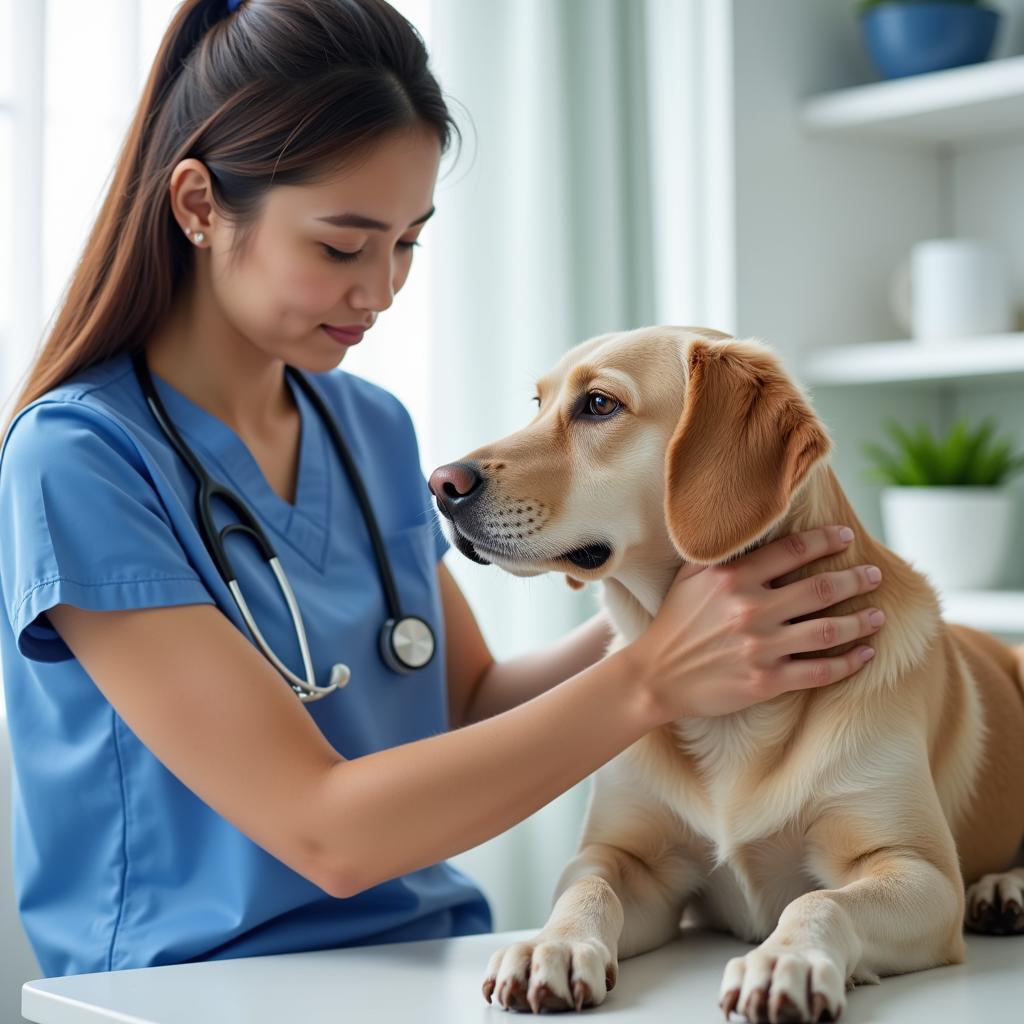Does better food really mean less poop for your dog? It’s a common question among dog owners, and the answer is a resounding yes, in most cases. Improving your dog’s diet can significantly impact their digestive health and, consequently, the frequency and consistency of their bowel movements.
Understanding the Link Between Diet and Dog Poop
The quality of your dog’s food directly affects their digestive efficiency. Low-quality food often contains fillers, artificial ingredients, and low-grade protein sources that are difficult for dogs to digest. These undigested materials bulk up the stool, leading to more frequent and larger poops. On the other hand, high-quality dog food with easily digestible ingredients is absorbed more efficiently, leaving less waste to be expelled. This translates to smaller, firmer, and less frequent bowel movements. So, if you’re tired of constantly scooping poop, switching to better food could be the solution.
 Dog enjoying a bowl of premium kibble
Dog enjoying a bowl of premium kibble
What Makes Dog Food “Better”?
When talking about “better” dog food, we refer to food that prioritizes your dog’s nutritional needs. Look for food with:
- High-quality protein sources: Meat should be the primary ingredient, listed clearly as chicken, beef, lamb, or fish, rather than generic “meat meal” or “by-products.”
- Whole grains or digestible carbohydrates: Brown rice, sweet potatoes, and oats are good options. Avoid fillers like corn and wheat.
- Healthy fats: Essential fatty acids support healthy skin and coat. Look for sources like fish oil or flaxseed oil.
- Fiber: A moderate amount of fiber aids in digestion and promotes regular bowel movements.
- Limited artificial ingredients: Avoid artificial colors, flavors, and preservatives.
How to Transition Your Dog to Better Food
Switching your dog’s food abruptly can cause digestive upset. It’s important to transition gradually over a period of 7-10 days. Start by mixing a small amount of the new food with the old food, gradually increasing the proportion of the new food while decreasing the old food until the transition is complete.
 Chart illustrating the process of transitioning dog food
Chart illustrating the process of transitioning dog food
Other Factors Affecting Dog Poop Frequency
While diet plays a major role, other factors can also influence how often your dog poops:
- Age: Puppies tend to poop more frequently than adult dogs.
- Activity level: More active dogs may poop more often.
- Hydration: Adequate water intake is essential for healthy digestion.
- Medical conditions: Certain medical conditions can affect bowel movements.
When to Consult a Vet
If you notice any significant changes in your dog’s poop, such as blood in the stool, diarrhea, or constipation, even after switching to better food, consult your veterinarian. These changes could indicate an underlying health issue.
 Veterinarian conducting a check-up on a dog
Veterinarian conducting a check-up on a dog
Conclusion
Improving your dog’s diet with better food is a significant step towards less frequent and healthier poops. By choosing high-quality food and transitioning gradually, you can support your dog’s digestive health and make clean-up a little less of a chore. Do Dogs Poop Less With Better Food? The evidence suggests a resounding yes.
FAQ
- How often should my dog poop? Most adult dogs poop 1-2 times per day.
- What does healthy dog poop look like? It should be firm, brown, and easy to pick up.
- Can I give my dog supplements to improve their digestion? Consult your veterinarian before giving your dog any supplements.
- How long does it take to see a difference in poop after changing food? You may see changes within a few days to a week.
- What should I do if my dog is still pooping a lot even with better food? Consult your veterinarian.
Need More Help?
For further assistance, please contact us:
Phone: 02437655121
Email: minacones@gmail.com
Address: 3PGH+8R9, ĐT70A, thôn Trung, Bắc Từ Liêm, Hà Nội, Việt Nam.
We have a 24/7 customer service team.